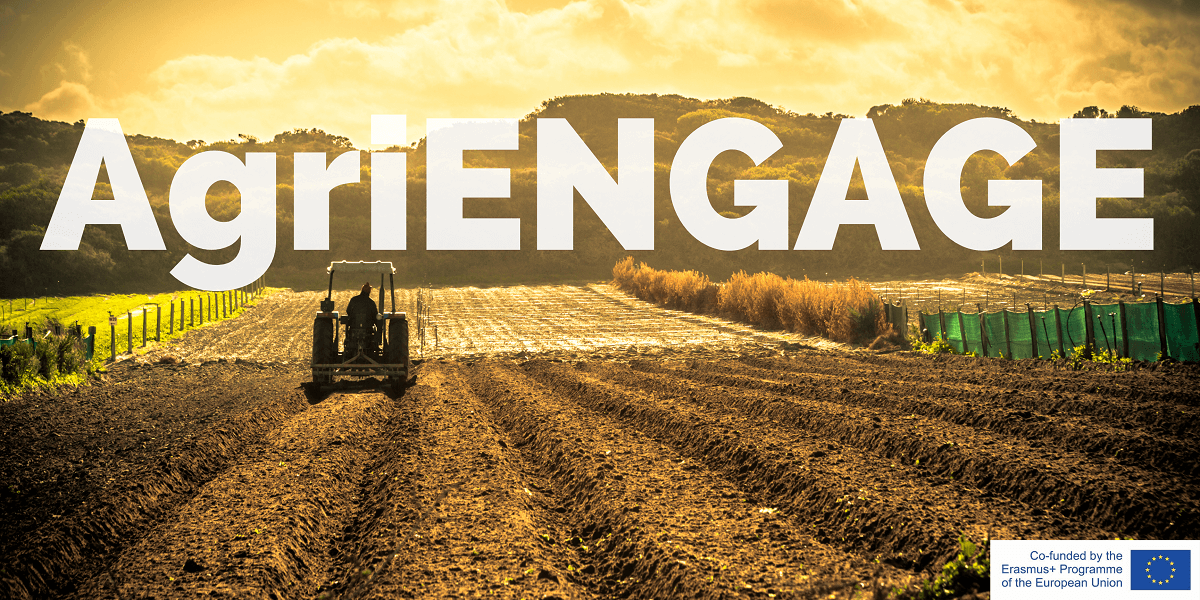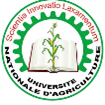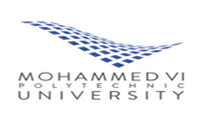Associate Professor
Carsten Nico Portefée Hjortsø

Overall developmental objective
AgriENGAGE aims to fill a significant human capacity gap concerning agricultural science graduates needed to foster the transformation of the agribusiness sector to enhance competitiveness and sustainable development as targeted in the national development plans of many African economies. The project's target groups are universities, university academic staff and students. The final beneficiaries include farmers, agribusiness employers, research institutions and the public sector.

Period: 2021 - 2024
Financing source: Erasmus+ Programme of the European Union
Amount: 994.811 EUR
The countries in Sub-Saharan Africa have similar needs, including food and nutritional insecurity as well as poverty, with inadequate human resource capacity to formulate and implement the right agricultural policies and drive the agenda of commercialisation of agriculture for economic development. At the human resource level, a limited number of university graduates have the requisite skills to drive the agricultural transformation agenda. A growing youth population exacerbates this, leading to graduate unemployment standing at more than 50% in some countries.
Most agricultural science students are ill-prepared and ill-equipped to work with research firms, entrepreneurial farming communities and agribusinesses. Consequently, they have limited employability and cannot contribute to rural and agro-enterprise transformation. The AgriENGAGE initiative intends to capacitate agricultural science students in business and community engagement skills to enable them to contribute constructively to sustainable development.
Most universities in Sub-Saharan Africa struggle with increasing student uptake, limited facilities and decreasing government funding as governments rarely finance universities for their total budget needs. The limited funding inhibits university staff’s continued professional education, which limits their exposure to changing requirements in agriculture and new curriculum delivery methods. As a result, most staff rely on chalk and paper and lecture delivery methodology, which is teacher-centred instead of learner-centred. As a result, university teachers lack the capacity and skills to deliver business and community engagement curricula efficiently. This AgriENGAGE project is intended to develop the participating universities’ staff’s educational skills and support the establishment of more practice-oriented curricula in community engagement, business management and agri-entrepreneurship.
The agricultural sciences curricula are primarily technical and concentrate on either animal or crop production courses with few or no opportunities to cater for competencies within business management, entrepreneurship, and community engagement - critical aspects of agricultural transformation and smallholder agriculture commercialisation. AgriENGAGE will review agricultural science curricula to include business and community engagement courses, develop modules to train staff and students in business and community engagement and introduce or upscale farm and industry attachment to enhance university-industry linkages.
Many challenges within the North African region compare to the situation in sub-Saharan Africa. Countries like Marocco experience high youth unemployment, agricultural jobs are not considered attractive, and most graduates lack practical business and community engagement skills to contribute to transforming the agricultural sector. On the other hand, in Marocco, the university staff are trained in learner-centred pedagogical skills and have established linkages with the industry. AgriENGAGE allows Moroccan partner universities to share their experiences through South-South collaboration with Sub-Saharan African universities.
In general, there are limited collaborations between African and European universities and little cooperation between Sub-Saharan and North African universities, and AgriENGAGE will create a platform for cooperation.
Carsten Nico Hjortsø, Associate Professor
Local Coordinator
Expertise: Food and agriculture sector entrepreneurship, business development, business incubation, entrepreneurship education, case teaching and PBL based educational experience
Carsten Nico Hjortsø (CNH) is Associate Professor (PhD in Natural Resource Management) at Department of Food and Resource Economics, within the Section for Production, Markets and Policy. CNH has 20 years of experience within management research, teaching, and capacity building. His research interest covers entrepreneurship, business development, innovation, and research/educational capacity development as well as curriculum development. CNH has been part of several larger research projects. Moreover, he was project manager of ‘Innovation and Entrepreneurship at UCPH’, a project aimed at pedagogical development in entrepreneurship and innovation teaching at UCPH during 2014-2017. CNH was work package leader in the ‘Strengthening Universities Capacity to Enhance Competitiveness of Agribusiness in East and West Africa’ funded by the European Union under EDULINK 11 and contributed to this project with staff training and education development expertise. Recently, CNH was project manager of the ‘UniBRAIN lessons learned study’ project, a 5-year consultancy and research program promoting co-learning and reflection across six university-based agribusiness incubators in East and West Africa. CNH has specific business development coaching experience through his involvement with the Science Innovation Hub (student business incubator at the faculty of Science-UCPH) and through the project Growth Food, an incubator program for food sector start-ups in the Danish Capital Region.
Contact: cnh@ifro.ku.dk
Thorkild Nielsen, Associate Professor
Expertise: Food sector entrepreneurship expertise, entrepreneurship education expertise, PBL based educational experience
Thorkild Nielsen (TN) is Teaching Associate Professor at University of Copenhagen, Department of Food and Resource Economics within the Section for Consumption, Bioethics and Governance. Since 1990 most of TNs work has focused on strategies and policies for sustainable food systems. His main research areas are: Food Policy, Food Ethics, Sustainable Food Production and Traceability. His latest work has focused on three areas: 1) Sustainable transition 2) Communication through the supply chain e.g. Traceability and 3) Food policy and Governance. TN has participated in numerous larger European research projects related to The Framework Programme for Research and Technological Development. Since 2010 TN has been one of several initiators in the creation and implementation of the Master program, Integrated Food Studies. He is now teaching at this program at the University of Copenhagen, and is responsible for the course: Governance and Change Management in Modern Food Systems Modules. In 2017 TN was involved in a research cooperation projects between universities in Denmark and Ghana. The project was meant to build research capacities of PhD and MSc students and the business capacities of actors in the root and tuber value chain. Finally TN has co-coordinated a project about entrepreneurial skills in the Danish food sector.
Contact: thorkild.nielsen@ifro.ku.dk
Expertise: University-industry collaboration, entrepreneurship education practice
Gergana Romanova (GR) is currently conducting research on university-industry collaborations with focus on food science and food ingredients sector. GR is an experienced qualitative methods researcher and lecturer in entrepreneurship, innovation, design thinking and business models.
Contact: gpr@ifro.ku.dk
Kenya:
Uganda:
Benin:
University of Abomey Calavi 
National University of Agriculture 
Morocco:
Mohammed VI Polytechnic University (UM6P) 
Institut Agronomique et Vétérinaire Hassan II (IAV) 
Slides: 1 - Embedding Sustainability in CS Teaching.
Video: 1 - Embedding Sustainability in CS Teaching.
Slides: 2 - Pedagogy for Embedding Sustainability.
Video: 2 - Pedagogy for Embedding Sustainability.
Slides: 3 - Curriculum Development Process.
Slides: 4 - Selecting a Case Type.
Video: 4 - Selecting a Case Type.
Slides: 5 - Teaching the Large Lecture Room.
Video: 5 - Teaching the Large Lecture Room.
Slides: 6 - Innovating Assessment.
Video: 6 - Innovating Assessment.
1 - 7 Steps Embedding Sustainability in Student Learning.
1 - Howlett et al. 2000 (doi).
1 - Learning Reflection Rubric.
3 - Bloom's Taxonomy Affective Domain.
3 - Bloom's Taxonomy Cognitive Domain.
3 - Bloom's Taxonomy Psychomotor Domain.
5 - Bonwell 1999 (doi).
5 - Renaud et al. 2007 - Student-Centered Teaching in Large Classes.
6 - Assessment Inventory.
Case Centre - How to Write a Good Teaching Case.
Emerald Guide - Writing Cases.
Jyderup, J.L. (2022). Reflections on Selecting a Type of Case (working paper).
McGuire and Whaley (2017) - Guidelines for Writing a Management Teaching Case Study.
Topics for Considering About Case-Based Teaching Activities.